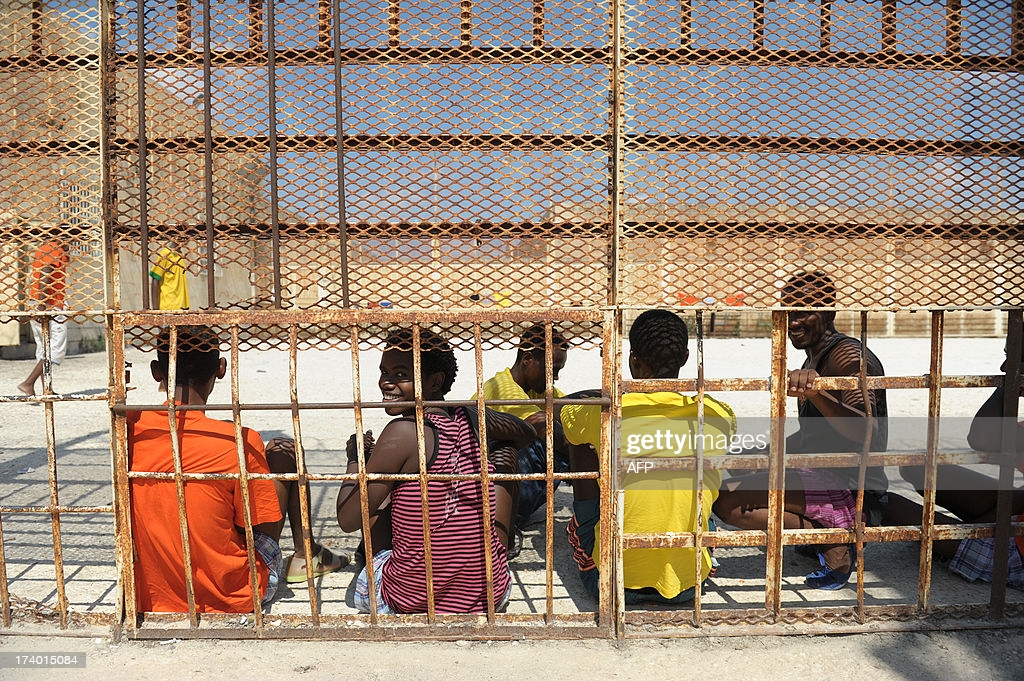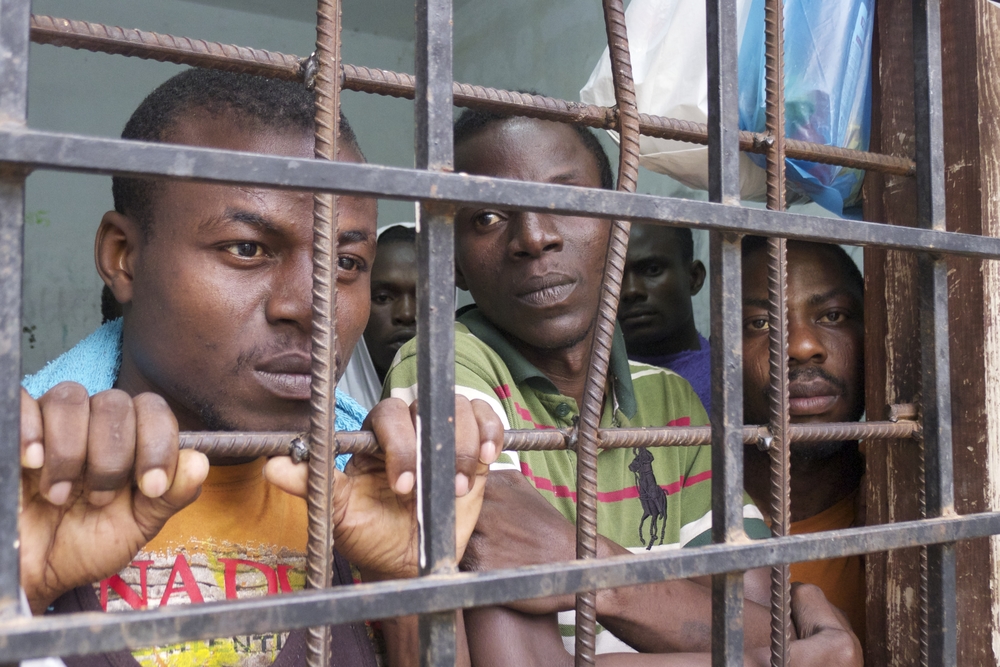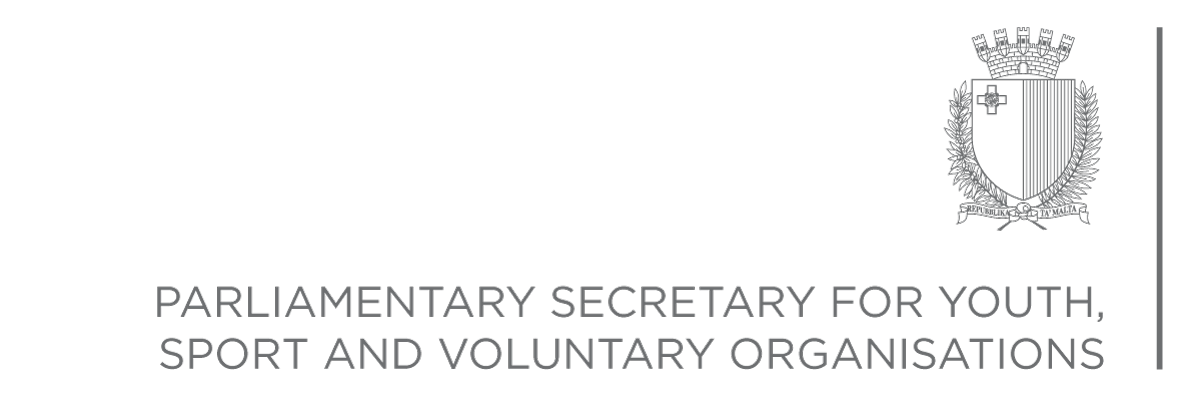#KeepingUpWithTheInterns
Hey all! I hope all of you are doing well! Today I will be writing about something that aditus foundation works a lot on: our work on migrant detention. To help me understand this topic and the current situation better I decided to interview our Director, Dr. Neil Falzon.
To start off, I asked him to explain the concept of migrant detention: “Detention is when people’s liberty is entirely taken away from them.”
As he was talking, I started to picture Malta’s detention as a form of imprisonment. Neil agreed with me, and told me that the detention centres “look and feel like prisons, with bars on the windows, guards everywhere and a highly securitised space!” He also added that “detained persons are not allowed to leave the detention centre and live under very strict conditions.”

As we got more into our discussion, I questioned the basis for detaining migrants. Here is when legal concepts came into play and Neil, being a lawyer himself, explained what the law states.
“The law states that for a State to deprive anyone, including migrants, of their personal liberty, there must be a legally valid reason. It also requires that the person’s detention be necessary, and not merely convenient or favourable. The legally valid reasons are those situations mentioned in the law…and only those!
Examples of these reasons include detention in order to prevent unauthorised entry into the country and detention just before a person is going to be deported. Laws regulating asylum also contain other situations where asylum-seekers may be detained, including that brief initial period when a person’s identity is still being verified.”
Detention must be necessary
It is important to underline what Neil said earlier regarding the legal requirement that detention be necessary. This means that the State is legally required to explore alternatives to detaining the specific person, such as conditional release, bail or requirements to sign at a Police station.
It is therefore not allowed to have general detention policies for all migrants, or for particular migrants, such as persons from a specific country.
The law requires an individualised assessment for each and every decision to detain.
Neil, aditus foundation Director
As we were discussing, I got curious about where migrants are being detained. Neil told me that Malta detains migrants in Marsa Initial Reception Centre, Safi Barracks, Lyster Barracks, and a place called ‘China House’. There is also the possibility to detain at Mount Carmel Hospital, the Police Headquarters, and at the Airport.
For how long?
Now that I was understanding a bit better what the law stats and the situation of the detention centres, I asked Neil about the allowed detention periods: for how long may migrants be detained? He explained that this depends on the reason why the migrant is being detained, as the law regulating that detention will also contain rules about its duration. For example, asylum-seekers may not be detained for more than 9 months. On the other hand, persons awaiting to be deported may not be detailed for more than 18 months.
He really emphasised the rule that detention must be necessary. “Just because a State may detain an asylum-seeker for up to 9 months does not mean it can freely detain all asylum-seekers.”
The legal reason for the detention must exist at every single moment the person is detained, as also the need for the person to be detained.
Any extra moment spent in detention constitutes a violation of a person’s right to personal liberty.
Neil, aditus foundation Director
aditus foundation does a lot of work on this difficult issue. But what exactly is the work we do in relation to migrant detention? Neil first explained that immigration detention has been one of aditus’ priorities since the establishment of the foundation, back in 2011. “For years, including now, migrants have been illegally detained…meaning Malta is unable to show the legal basis or necessity to detain them. Political expediency, convenience or ‘lack of space’ are not valid reasons to detain migrants!”.
Living conditions?
As a human rights NGO, we’re also very upset at how people are treated in detention. Their living conditions are awful! At times, they do not even have the basic necessities, for example: underwear, clothes, soap, shampoo. He also explained how no activities are being organised and no information is provided to them about their situation or their lives. Day after day, with absolutely nothing to do. “We’ve seen people leave the detention centres in terrible states of anxiety, depression and humiliation.”
What do we do?
Then he proceeded to answer my question with three main points. Firstly, we do our best to talk to the Government about these illegalities and human rights violations.
Dialogue is always our priority, where we try to solve problems together and in a peaceful manner.
Neil, aditus foundation Director
Secondly, when we visit detained persons we provide them with needed information about their situation. We try to look out for vulnerable persons, such as children and persons with health conditions, so that we can refer them to support services. And last but not least, we offer legal support on various issues: the asylum procedure, the legality of detention, etc. Our legal support also includes getting people out of detention where this is illegal. We’ve filed several cases before the Courts, pushing for release but also to send a message to the Government that use of illegal detention is unacceptable.

So?
To end our discussion I asked him his wishes as an NGO and as a lawyer, in relation to detention. “My wishes are quite straightforward, and really we’re just asking Malta to bring its laws, policies and practices in line with the law.”
“I would like Malta to stop relying on detention as a political tool to appease the population, and instead to adopt a more legal and humane approach. Make more use of alternatives: it’s very difficult for people to flee Malta, so it’s hard to say that detaining them is absolutely necessary! Ensure that the detention centres are managed and staffed by persons who are appropriately trained for the job. Do not humiliate persons by forcing them to rely on our donations for clothes and other basics…if you choose to detain them, then it is your responsibility to treat them properly!”
As I reflected on our discussion we understood that detention is never pleasant, as it is a form of imprisonment. Yet there are legal, and moral standards about how it should happen. There are standards about the legal use of detention and also about the living conditions of detained persons.
I hope that this blog post gives you the readers a better understanding of what is happening in detention and our work in relation to detention. I will write soon and until then stay safe!
Matthew xx
#KeepingUpWithTheInterns is part of our project Marginalised Persons as Human Rights Volunteers. If you want to follow Matthew and Rimaz as they navigate their way through Malta’s human rights landscape, subscribe to our News & Updates or follow them on our social media pages!
This project has been funded through the Voluntary Organisations Project Scheme managed by the Malta Council for the Voluntary Sector on behalf of Parliamentary Secretary for Youth, Sports and Voluntary Organisations within the Ministry for Education and Employment. This project/publication reflects the views only of the author, and the MEDE and the MCVS cannot be held responsible for the content or any use which may be made of the information contained therein.



